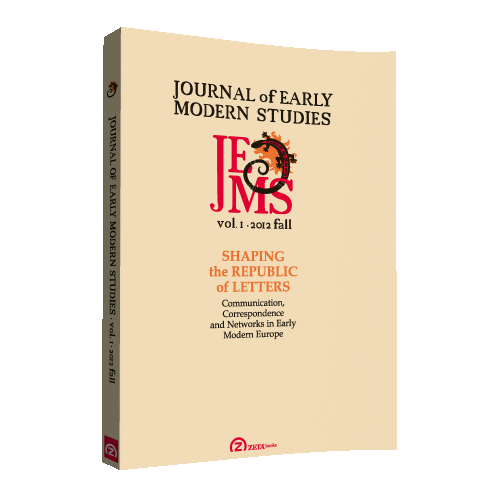Le rôle des expériences dans la physiologie d’Henricus Regius : les «pierres lydiennes» du cartésianisme
Le rôle des expériences dans la physiologie d’Henricus Regius : les «pierres lydiennes» du cartésianisme
Author(s): Delphine KolesnikSubject(s): Philosophy
Published by: Zeta Books
Keywords: Cartesianism; historiography; substantial forms; experiments; the invisible; metaphysics; reason; physiology
Summary/Abstract: The historiography of Cartesianism often opposes Regius, a dissident empiricist medical doctor who denied the capacity of natural reason to demonstrate the immateriality and the immortality of the soul, to Descartes, a metaphysician who on the contrary grounded his philosophy in the real distinction between thinking and corporeal substance. In this contribution, I show how our understanding of this relation is modified when approaching the relation between the two men taking departure in the question of physiological experiments. Going back to some foundational texts, namely the disputations on physiology defended at the University of Utrecht from around 1640, I follow the evolution in how they dealt with three essential questions: the beating of the heart, digestion, and muscular movement, all the way until the last edition of the Philosophia naturalis in 1661. I reconstruct the prolonged dialogue between Regius and Descartes on these questions in order to show that the recourse to physiological experimentation in Regius’s work does not serve to question Descartes’s philosophy. Quite to the contrary, Regius wishes to consolidate this philosophy and purge it of its slag by responding to accusations of abstraction and dogmatism directed against a Cartesian metaphysics and physics that remove both venture to speak of the invisible. By following the aftermath of Regius’s innovations in the texts by Clerselier and De la Forge that accompany the posthumous edition of L’Homme in 1664, this contribution proposes, in short, to reconsider an interpretation of Cartesianism that is too “dualist,” by taking into account what a more empiricist reading can contribute to it.
Journal: Journal of Early Modern Studies
- Issue Year: 2013
- Issue No: 1
- Page Range: 125-145
- Page Count: 21
- Language: French
- Content File-PDF

